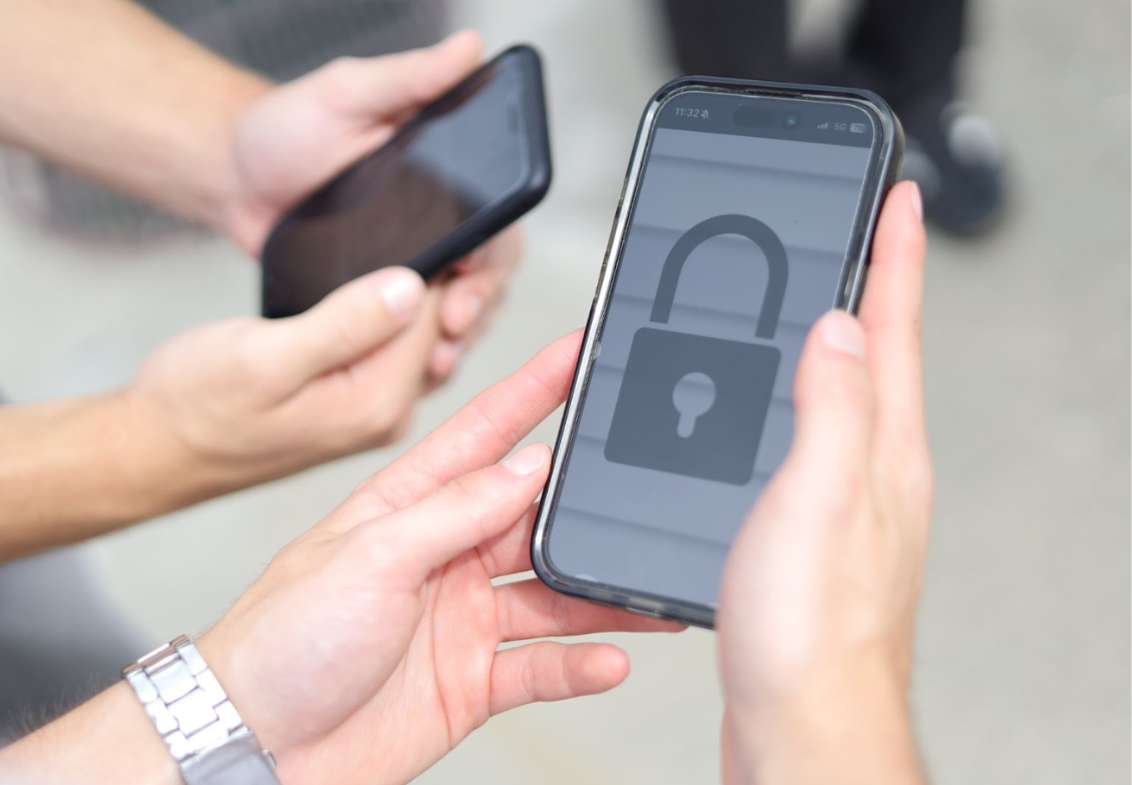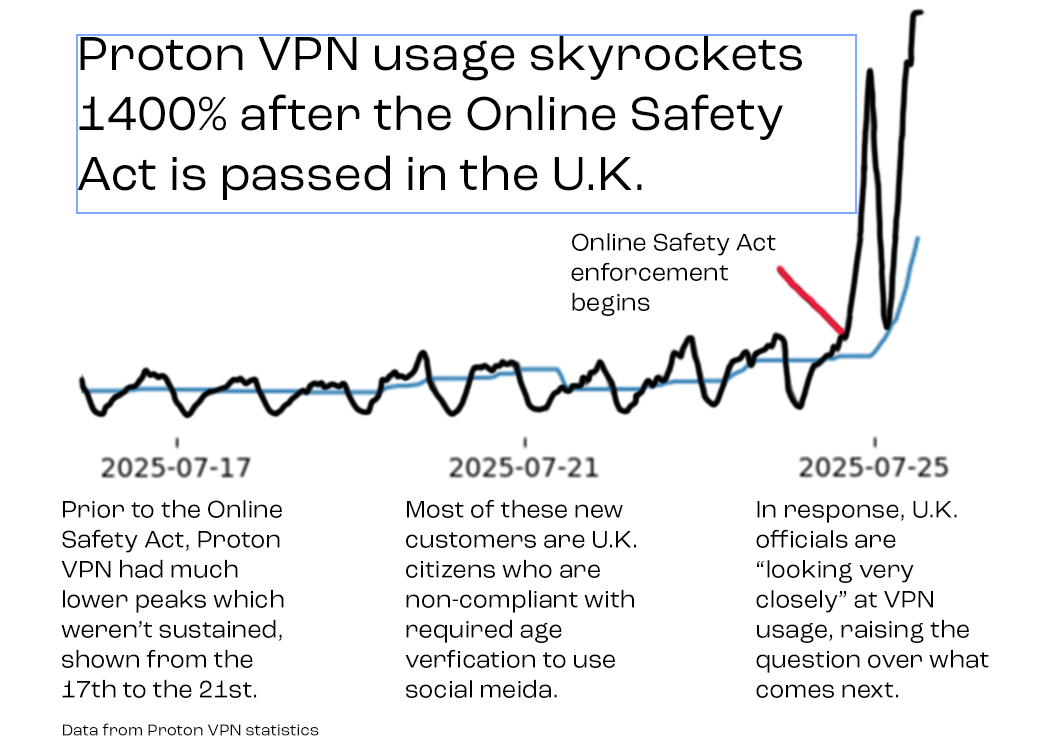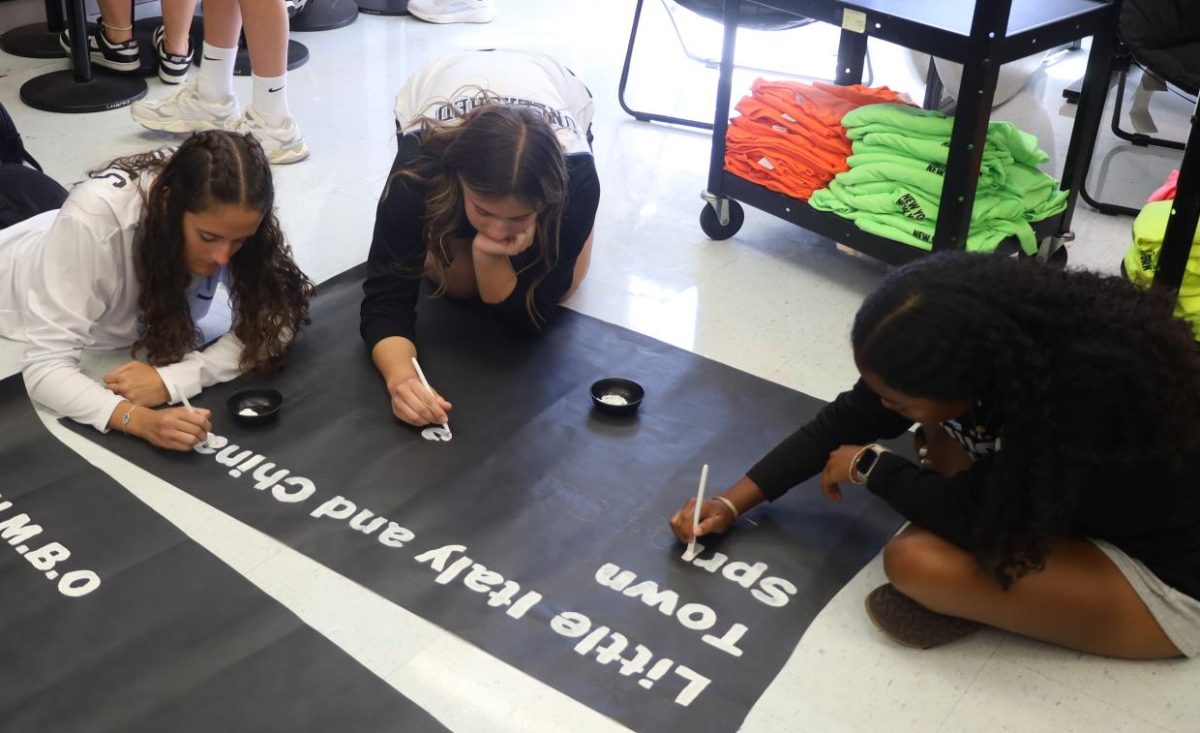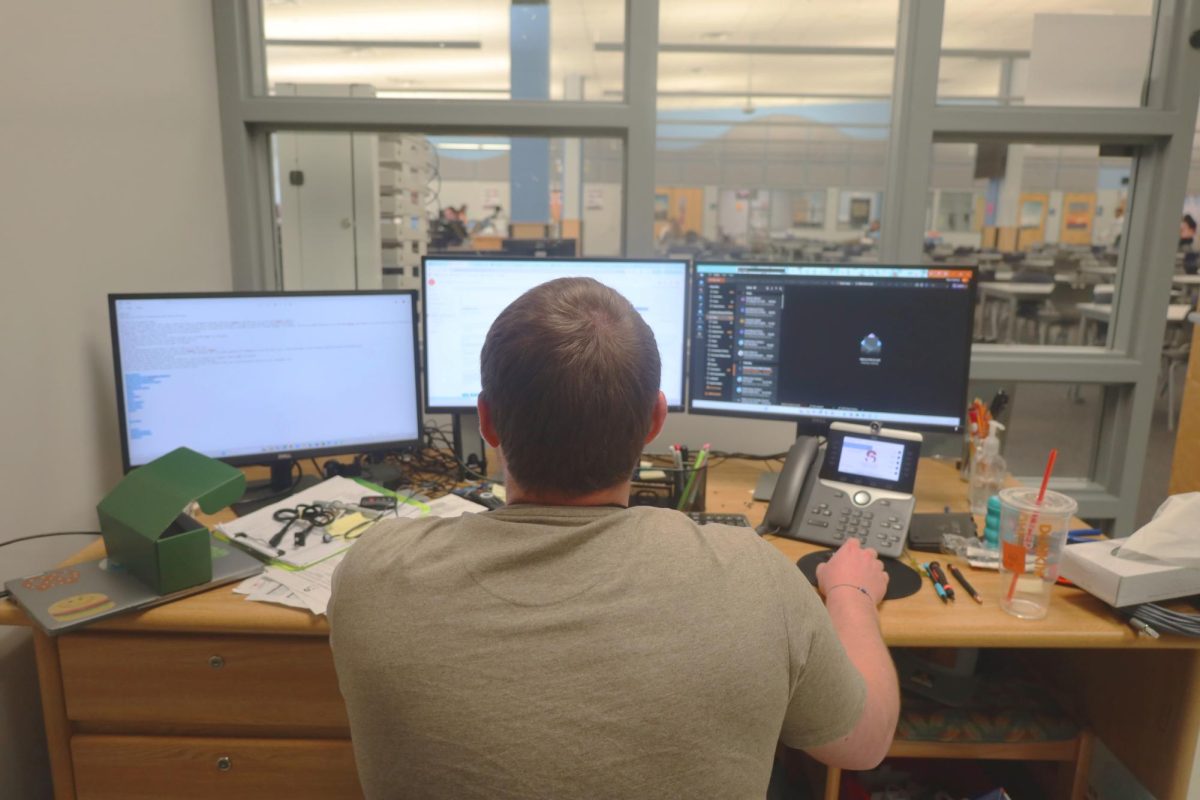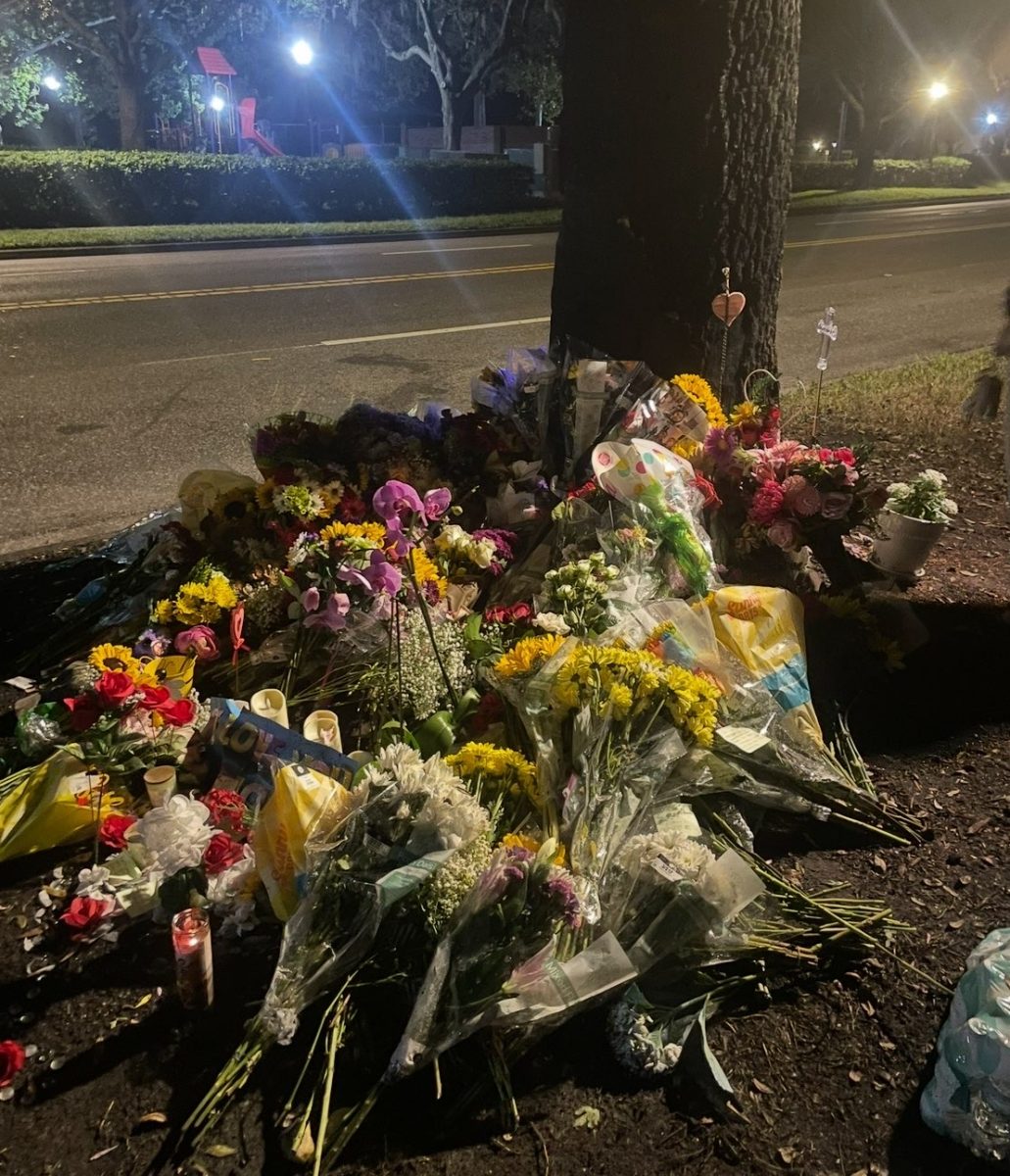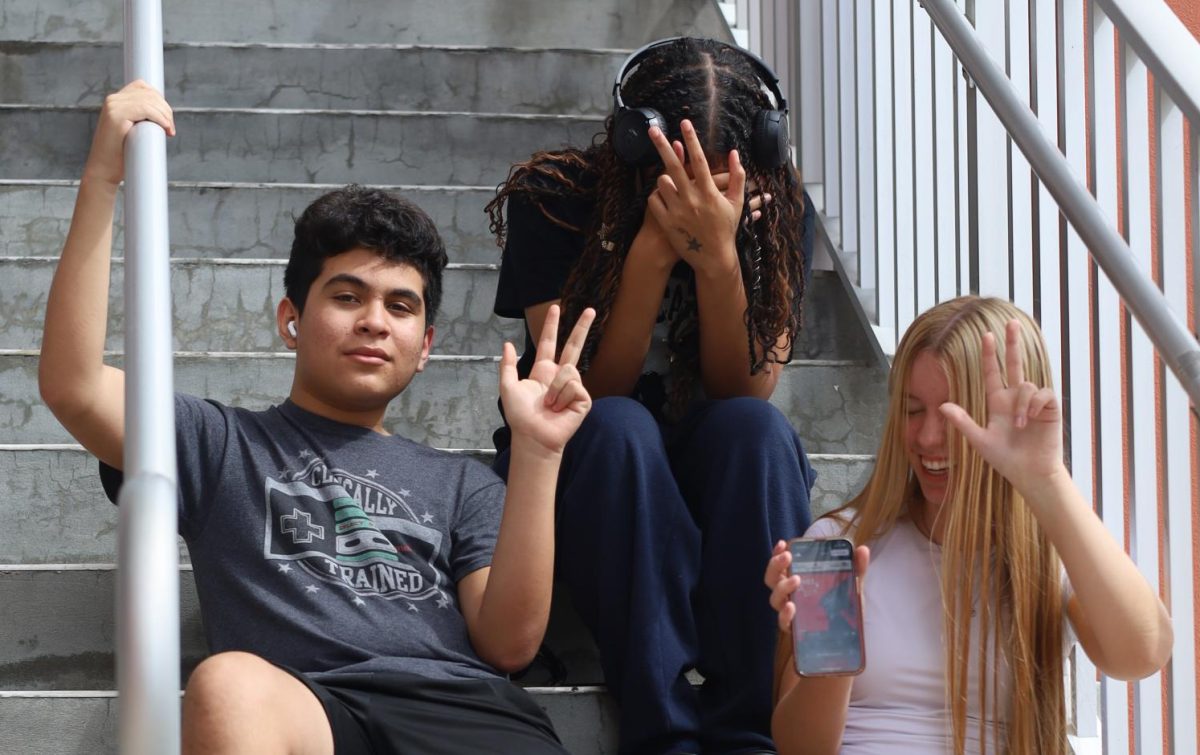You drop your backpack and collapse on the couch after a long day of school. You unlock your phone and open social media, only to be met with a prompt: “Please scan your face to access our services.”
Introduced in 2023 and projected to finish implementation by 2026, the Online Safety Act currently requires U.K. citizens to provide government I.D. or a facial scan in order to access websites that may contain violent or mature content, whether intended by the site or not.
Many citizens are unhappy with the legislation, citing violations of personal privacy and freedoms, while legislators argue that it will help protect children from accessing dangerous content online.
As it stands now, the United States Congress has reintroduced a similar bill titled the Kids Online Safety Act. Originally introduced in 2023, the bill did not initially pass or go into effect, but with a growing global effort to make online spaces safer for younger audiences, this bill is being given another chance through its second proposal.
The ideas present in KOSA are very similar to the ones present in the U.K., mainly focusing on social media sites. If KOSA is passed, companies with user-to-user contact must “exercise reasonable care” to “implement tools and safeguards to protect users and visitors under the age of 17.”
Some are upset with the privacy concerns raised by these internet regulation laws and age verification, while others accept these laws wholeheartedly for the sake of children.
At school, students and staff are divided on whether age requirements or age verification are ethical.
“Little kids [shouldn’t be] on TikTok or something like [it],” Freshman Avery Hopgood said. “I don’t think [it’s good] for their mental health. They can take cyberbullying and things like that, and in the future it should lead to more age restriction.”
With plenty of unique views on the best way to keep children safe online, the Online Safety Act and KOSA have been a culminating point of all these large discussions. Junior Jackson Cummings shares his angle on government involvement in online spaces.
“I feel like the government should have a minimal role on the internet,” Cummings said. “It could be seen as swaying someone’s opinion in [their] favor; it’s good for political campaigns.”
In order to process the millions of age-verifying users on social media and the internet, companies are training artificial intelligence to read government IDs and analyze facial scans to determine the age of users.
“AI is very much like a baby right now,” Cummings said. “And that information can be accessed very easily. Some of the secure servers aren’t as secure as a lot of people think, and that data will constantly be [sought after].”
Meanwhile, AP Language and Composition teacher Jamie Ling sees the nuance in the matter, hoping people with differing perspectives can compromise to improve safety for minors without invading privacy.
“Because we know that social media is harming students’ mental health, I feel like putting age restrictions on it would help parents,” Ling said. “But ultimately, I think that parents need to be the ones to make the decisions for their children. So it’s tangly, It’s a complex issue.”
Many students and citizens share the same concerns as Ling. For decades now, the internet has remained an anonymous space free from government regulation, meaning people in online spaces were free to do as they wished, but were not protected from harmful content or sketchy users as much as they are now.
“I can see the good in it,” Ling said. “However, it is worrisome to me that so much of our personal privacy is up for grabs. We’re being tracked within an inch of our lives. And wherever we [use] our search engines, I think people aren’t as aware of how heavily invasive [it is]. As time goes on, it’s seemingly less invasive. But that doesn’t mean that it is.”
The status quo of age verification is commonly insufficient, with many minors able to bypass the current system with ease. For example, if a 12-year-old wanted to create an account on Discord–a social media app commonly used by gamers–they could bypass the 13+ age requirement by simply entering a different birthday.
Despite intentions from the UK parliament to protect children, the large crowd of adults unwilling to give up their face or credentials to online services have resorted to using Virtual Private Networks in order to mask their location and bypass the measures companies have taken to verify over-18 users.
VPNs are paid or free services that can change where a device’s location appears on the globe, having servers around the world to support this process. If someone in the UK had to verify their age to access Instagram, they could simply use a VPN to change their device’s location to somewhere not under UK law, such as Switzerland or Germany.
Jane* is a student who openly uses VPNs to enhance everyday life. Using VPNs to bypass regional show restrictions–like how some Netflix shows are unavailable in certain countries–she often speaks to people who might be considering getting a VPN to avoid age verification.
“Get one,” Jane* said. “If you want to [avoid] something, use a VPN. It’s the safest way, so you don’t get in trouble because it [can be] a federal crime, no matter how small of a thing you [avoid], at the end of the day, it’s a federal crime.”
If KOSA was implemented in US law, students would lose access to a lot of content on social media. Even though VPNs seem like a magic key to the unrestricted internet, it is not out of the question for the UK or US to ban them as well. With government officials “looking very closely” at VPN usage in the UK–which skyrocketed 1400% after the Online Safety Act was implemented–it is within the realm of possibility that authorities could control what content is seen on the internet.
“The internet is just like other periods in history, where it’s uncharted territory, and [governments are] now trying to figure out what we need,” AP US History teacher Amy Bingham said. “So I think there need to be some safety parameters.”
Bingham expresses concern over how these laws will change life for students and future generations, and considers alternatives that could achieve the same result.
“Having very young children with full access to everything online is probably not the best practice. And so we shouldn’t adopt age verification, but age requirement,” Bingham said.
With some people struggling to adapt to the digital age, or unsuspecting parents leaving children with unrestricted internet access 24/7, it is paramount to teachers like Bingham for awareness to be spread on the matter.
“The kids now have only known life with cell phones, and their parents use cell phones as well,” Bingham says. “However, they have not lived every day of their life with one. Educating parents on how to set up safeguards for their children is probably more important than anything else.”
Many have been wondering if the government should involve themselves in every corner of the internet for the sake of safety, or if it is a privacy and security concern to upload sensitive information to governments and companies. Questions remain over the parental role in regulating what these children consume online.
As the situation develops and questions about online safety are answered, like awareness over social media content or tactics used by advertisers to maximize viewer retention, students are able to contact their local representatives, senators and governor to have their voices heard.
To contact state representatives, FlHouse.gov is a resource with all necessary contact information to find the people that represent citizens.
To contact state senators, flsenate.gov helps find representing congressmen, allowing people to directly give feedback and suggestions to lawmakers.
*Name changed for privacy.

